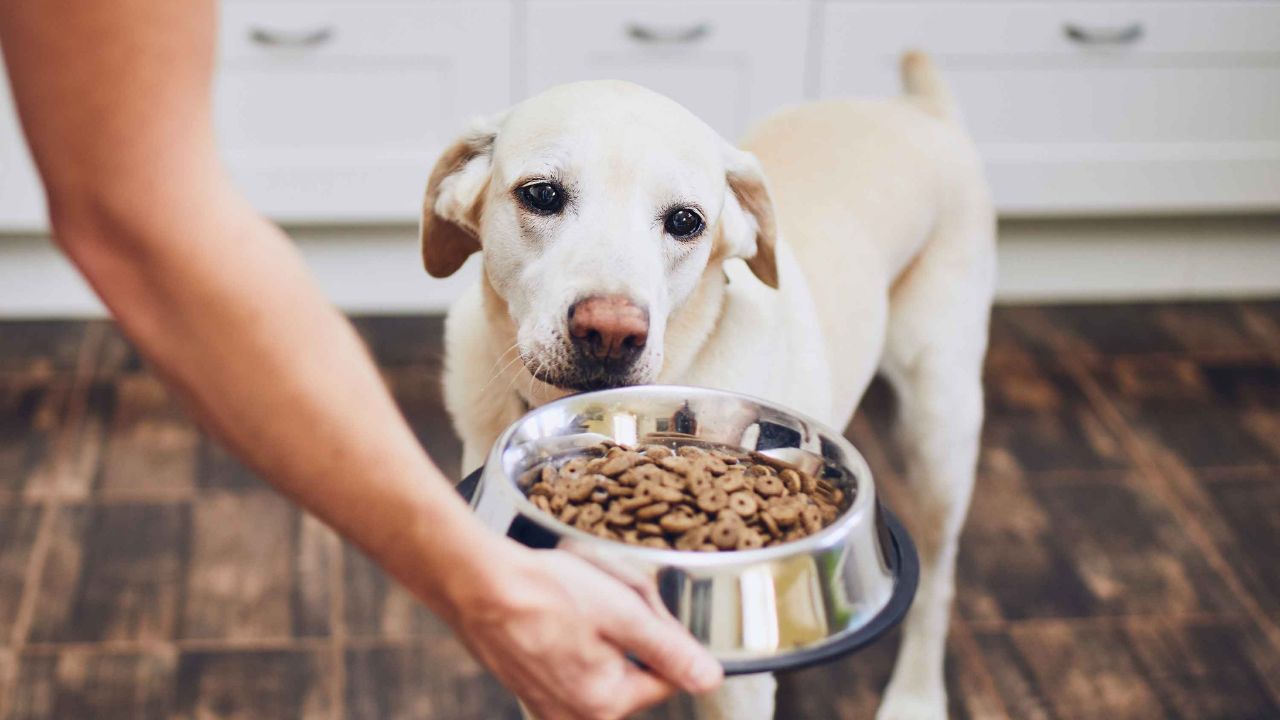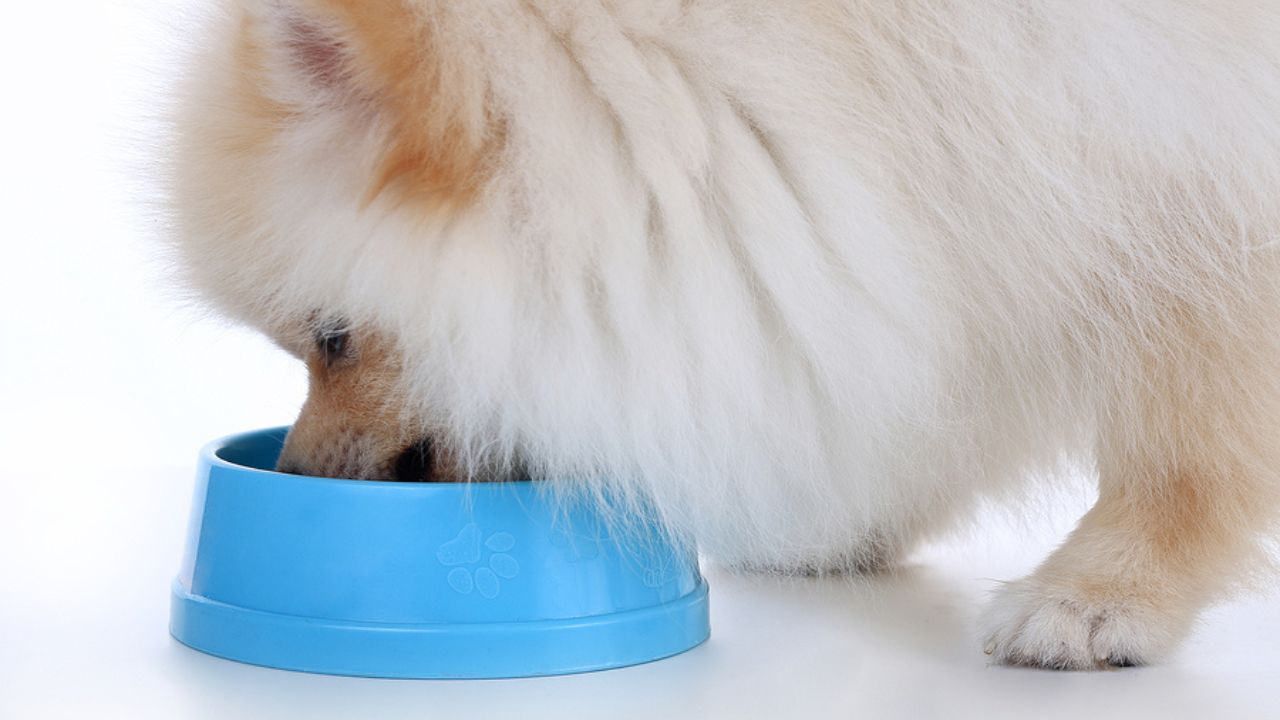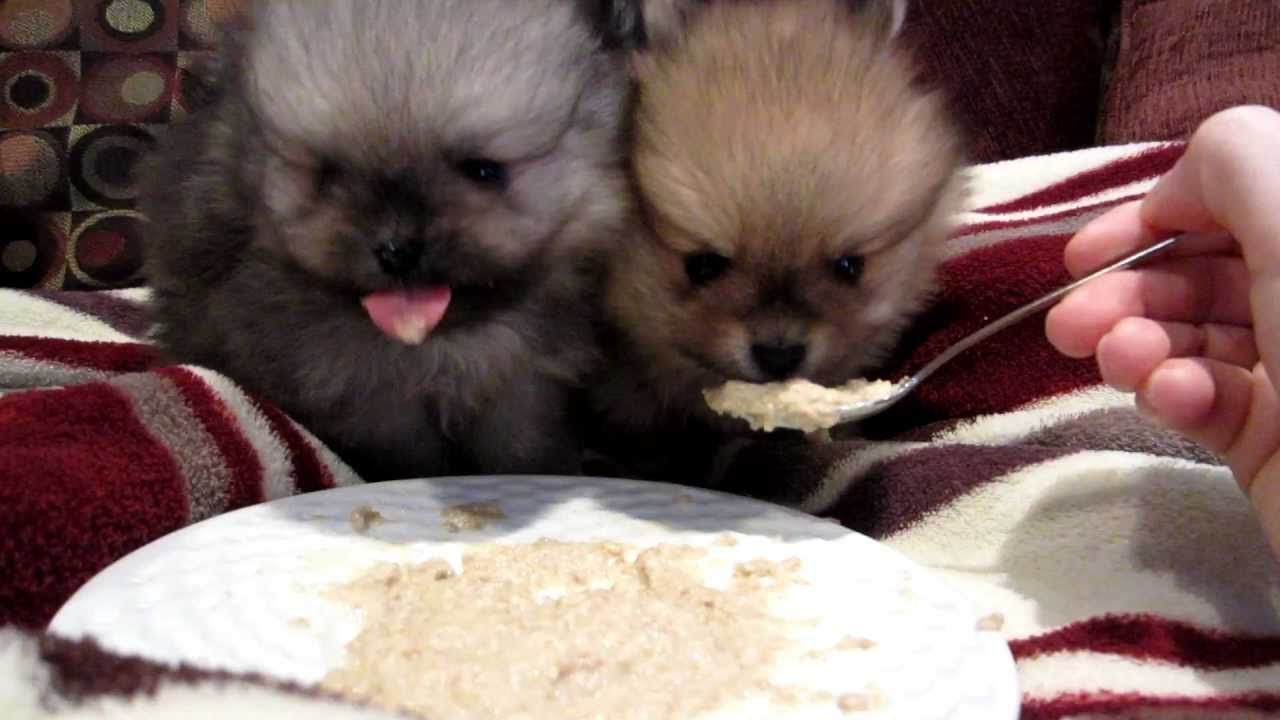Feed a pomeranian puppy, bringing home a Pomeranian puppy is an exciting and joyful experience. As a responsible pet owner, one of your primary concerns should be ensuring that your new furry friend receives proper nutrition.
Feeding a Pomeranian puppy requires careful attention to their unique dietary needs to ensure they grow healthy and happy. This comprehensive guide will walk you through the essentials of feeding a Pomeranian puppy, covering everything from selecting the right food to establishing a feeding schedule.
Pomeranian Nutritional Needs
Before diving into the specifics of feeding a Pomeranian puppy, it’s important to understand their nutritional requirements. Pomeranians are small-breed dogs that have distinct characteristics and needs. Here are some key points to consider:
Protein: Pomeranian puppies require high-quality protein to support their growth and development. Look for puppy food formulas that contain real meat (chicken, turkey, or beef) as the primary ingredient.
Fat: Healthy fats are essential for Pomeranian puppies as they provide them with energy. Opt for food options that include omega-3 fatty acids, which aid in brain development, healthy skin, and a shiny coat.
Calcium and Phosphorus: Pomeranian puppies need adequate calcium and phosphorus levels to grow bones and teeth. Ensure that the puppy food you choose has appropriate ratios of these minerals.
Small Kibble Size: Pomeranian puppies may struggle to eat larger kibble due to their tiny size. Selecting food with a small-sized kibble makes it easier for them to chew and digest.
Choosing the Right Puppy Food
Selecting the right food for your Pomeranian puppy is crucial for their health and well-being. When choosing puppy food, keep the following factors in mind:
Life Stage: Look for puppy-specific formulas designed to meet the nutritional needs of growing Pomeranians. These foods contain the necessary nutrients in appropriate ratios.
Quality Ingredients: Read the ingredient list carefully and choose a puppy food with high-quality ingredients. Avoid products that include fillers, artificial preservatives, and by-products.
Brand Reputation: Opt for reputable brands with a history of producing nutritious and balanced dog food. Consult with your veterinarian for recommendations if you need help deciding which brand to choose.
Establishing a Feeding Schedule
Establishing a consistent feeding schedule is essential for Pomeranian puppies. Here’s a general guideline to help you create a feeding routine:
Age 6-12 Weeks: Pomeranian puppies require frequent meals during this stage. Feed them four times daily, dividing their daily portion into smaller meals.
Age 12-16 Weeks: Reduce the frequency to three meals daily. Adjust the portion sizes according to your puppy’s growth rate and activity level.
Age 16 Weeks and Older: You can transition to two meals daily by this stage. Split the daily portion accordingly, ensuring the total meets your puppy’s nutritional requirements.
Portion Control and Monitoring
While establishing a feeding schedule is important, monitoring portion sizes and adjusting them as needed is equally crucial. Overfeeding can lead to obesity, while underfeeding can result in inadequate nutrition. Here are some tips for portion control:
Follow Feeding Guidelines: Puppy food packages usually provide feeding guidelines based on the puppy’s weight and age. Use these as a starting point and adjust depending on your puppy’s needs.
Monitor Weight: Regularly weigh your Pomeranian puppy to ensure they are maintaining a healthy weight. Adjust the portion sizes accordingly if you notice any weight fluctuations.
Avoid Free-Feeding: Pomeranian puppies tend to overeat if given the freedom to graze throughout the day. Establish meal times and remove any uneaten food after 15-20 minutes.
Healthy Feeding Practices

In addition to selecting the right food and establishing a feeding schedule, there are a few healthy feeding practices to keep in mind:
Provide Fresh Water: Always ensure your Pomeranian puppy can access clean water. Change the water regularly to keep it free from contamination.
Avoid Table Scraps: While sharing your food with your furry friend may be tempting, it’s essential to avoid feeding them table scraps. Human food can be harmful or even toxic to dogs.
Treats in Moderation: Treats can be a great way to reward your Pomeranian puppy, but should be given in moderation. Choose healthy, puppy-specific treats and factor them into their daily calorie intake.
Consulting with Your Veterinarian
Every Pomeranian puppy is unique, and their nutritional needs may vary. It’s important to consult with your veterinarian throughout your Pomeranian puppy’s growth and development. They can provide personalized guidance and recommendations based on your puppy’s needs.
Your veterinarian can help you:
Determine the Ideal Weight: Pomeranians come in different sizes, so it’s essential to determine your puppy’s ideal weight range. Your veterinarian can assess their growth progress and advise you on maintaining a healthy weight.
Address Dietary Concerns: If your Pomeranian puppy has specific dietary concerns or sensitivities, your veterinarian can recommend specialized diets or supplements to meet their nutritional requirements.
Monitor Health Conditions: Certain conditions may impact your Pomeranian puppy’s dietary needs. Your veterinarian can guide you on adjusting your diet to manage allergies, gastrointestinal issues, or kidney problems.
Transition to Adult Food: As your Pomeranian puppy grows older, they will eventually transition from puppy food to adult food. Your veterinarian can guide when and how to make this transition smoothly.
Introducing New Food
Feed a pomeranian puppy, when transitioning your Pomeranian puppy to a new brand or type of food, it’s essential to do so gradually. Abrupt changes in diet can lead to digestive upset and stomach issues. Follow these steps to introduce new food:
Mixing Method: Mix a small amount of the new food with their current food. Gradually increase the proportion of the new food over several days until they are solely on the new diet.
Observation:
- Monitor your puppy’s reaction to the new food during the transition.
- Look for any signs of upset stomach, diarrhoea, or changes in appetite.
- If any issues arise, consult your veterinarian for guidance.
Grooming and Feeding
As you establish a feeding routine for your Pomeranian puppy, it’s important to consider how their feeding habits may affect their grooming needs. Here are some tips to keep in mind:
Avoid Messy Eating: Pomeranians have long, fluffy fur that can easily get messy during mealtime. Use raised bowls or a feeding mat to catch spills and prevent food debris from sticking to their coats.
Regular Grooming: Pomeranians require regular grooming to keep their coats clean and free from matting. After mealtime, use a damp cloth or pet-safe wet wipes to clean their face and paws if necessary.
Dental Care
Proper dental care is crucial for Pomeranian puppies’ oral health. Small breed dogs like Pomeranians are prone to dental issues such as tartar buildup and tooth decay. Here are some dental care tips:
Brushing Teeth:
- Introduce your Pomeranian puppy to teeth brushing early on.
- Use a soft-bristled, pet-specific toothbrush and toothpaste.
- Start with short sessions and gradually increase the duration as they become more comfortable.
Dental Chews and Toys: Provide your puppy with appropriate chew toys and dental treats to promote oral health. These can help reduce plaque and tartar buildup while keeping them entertained.
Monitoring and Adjusting
As your Pomeranian puppy grows and develops, their nutritional needs may change. Regularly monitor their weight, body condition, and overall health to ensure they thrive. Adjust their portions to maintain a healthy weight and meet their changing energy requirements.
Additional Resources
For further information on feeding Pomeranian puppies, consider consulting reputable sources such as:
American Kennel Club (AKC): The AKC provides information on dog breeds, including Pomeranians, and offers valuable insights into their nutritional needs.
Pomeranian Club of America: This breed-specific club can provide guidance and resources on all aspects of Pomeranian care, including feeding and nutrition. Facts Regarding the Best Food for Pomeranian Puppy Dogs
Puppies of Pomeranian breeds should be fed wet and dry puppy kibble and premium commercial puppy food with the proper calcium-to-phosphorus ratio.
Yoghurt, cheese, and milk are dairy products that can be included in their diet.
Puppies under eight weeks old should follow a feeding schedule that includes one or two heaping tablespoons of canned puppy food three to four times a day and access to dry food around the clock.
- Puppies younger than six months old must have food on hand at all times; six to twelve months old require canned puppy food twice a day, while dry food is still available around the clock.
- Red meat and calcium supplements should be avoided; home cooking should wait until the child is at least 18 months old, and raw feeding should be avoided before then.
- It’s important to check pet food labels to ensure your Pomeranian’s diet contains enough fatty acids for heart health, muscle strength, and skin protection against dermatitis.
- Feed your Pomeranian three or four times a day until he gets older, then cut back to just two meals daily. Regularly check his weight for signs of obesity caused by an excessive calorie intake about daily activity levels. Your Pomeranian needs more calories than an adult dog does.
- Dairy products must supply more calcium during teething times to maintain a healthy balance between phosphorus and calcium levels, which are essential for the growth and development of the skeletal structure.
- When choosing how much and what kinds of food to feed your puppy or adult dog, consider several factors, including size, gender, activity level, and health; if making the switch from puppy food proves challenging, try adding small amounts of canned puppy food or fat-free turkey/chicken broth; don’t forget to praise them whenever they eat!
- After your Pomeranian turns one year old, you should start making homemade pet recipes for him to eat. These recipes can be frozen in meal-sized portions if needed.
How Much Should I Feed My Pomeranian?

Feed a pomeranian puppy, what is the recommended amount of food for a Pomeranian? Because the amount varies based on age, weight, and other factors, your veterinarian should always be your first choice when seeking an answer to this question. Generally speaking, though, a pound of weight equals about ½ cup of premium dog food. This should be divided in half between feedings as it will be your daily total.
Consider the general guidelines in the following feeding chart:
Weight
Feeding Amount (per day)
3 pounds
¾ to 1 ½ cups
5 pounds
1 ¼ to 2 ½ cups
7 pounds
1 ¾ to 3 ½ cups
9 pounds
2 ¼ to 4 ½ cups
How do you know if you’re feeding your Pom enough? Keeping an eye on their weight is an easy way to check. You’re likely in a good spot if they maintain their weight.
Remember that Pom Poms are prone to becoming overweight because of their small size, so keep an eye on this and continue working with your vet to refine the amount as they get older or if their lifestyle or activity level changes. Once they hit their senior years (8+), especially, they may need a bit less food as their metabolism slows down. (Tip: check out our senior dog food suggestions here!)
How Often Should I Feed My Pomeranian?
Feed a pomeranian puppy, next, how often should you feed your Pom pup? Smaller dogs require more frequent feedings than their larger counterparts despite the common misconception that they require very little throughout the day to keep their tiny bodies moving. Pomeranians burn calories quickly, so feeding them three times a day is advised by many experts. Even more should be fed to Pomeranian puppies—up to four meals daily.
Consider these guidelines for your feeding schedule:
- For puppies of Pomeranian breeds, feed them four times a day, evenly spaced out throughout the day. For instance, you could feed your dog in the morning, at midday, in the early evening, and again in the late evening.
- When feeding an adult Pomeranian (one year or older), try to have three meals spread out over the day.
Similar to humans, dogs can also develop certain preferences. For example, some dogs love a big, hearty breakfast, while others prefer a big dinner. Either is fine!
Conclusion
Feeding a Pomeranian puppy requires attention to their unique nutritional needs. By selecting high-quality puppy food, establishing a feeding schedule, practising portion control, and consulting with your veterinarian, you can ensure your Pomeranian puppy receives the nutrition they need for a healthy and happy life.
FAQ
Do Pomeranians Need Puppy Food?
Feed a pomeranian puppy, Food must always be available for Pomeranian puppies younger than six months old. After six months, Pomeranians still need puppy food until a year old. Pomeranian puppies need canned puppy food twice daily from 6 to 12 months of age, while dry food should always be available. It should always be possible to find high-quality, dry puppy food.
When Do Pomeranians Switch to Adult Dog Food?
After a year of age, Pomeranians typically switch from puppy food to adult dog food. When your Pomeranian puppy’s puppy teeth start to fall out and are replaced with adult teeth, it’s one sign that it’s almost adulthood. A mature Pomeranian puppy’s nutritional needs are 20% for fats and 30% for protein.
How to Care For a Pomeranian Puppy?
Feed a pomeranian puppy, In addition to eating healthily, your Pomeranian puppy needs exercise, so let them run around the yard or house unrestricted under supervision. Remind yourself not to overfeed them right before they run around or exercise; instead, feed them later or wait an hour after eating before engaging in any physical activity.
How Much Food Should a 10-Week Old Pom Puppy Eat?
Feed a pomeranian puppy, a 10-week-old Pom puppy should begin feeling at home and be aware of the rules. The puppy needs to eat three or four times a day. Depending on size, your puppy should be fed between ¼ cup and ½ cup of food daily. It’s not too little food, so don’t worry. Recall that Pomeranians are small dogs, so their food needs are minimal.

